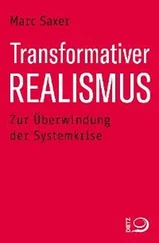Mark Fisher - Capitalist Realism - Is There No Alternative?
Здесь есть возможность читать онлайн «Mark Fisher - Capitalist Realism - Is There No Alternative?» весь текст электронной книги совершенно бесплатно (целиком полную версию без сокращений). В некоторых случаях можно слушать аудио, скачать через торрент в формате fb2 и присутствует краткое содержание. Жанр: Старинная литература, на английском языке. Описание произведения, (предисловие) а так же отзывы посетителей доступны на портале библиотеки ЛибКат.
- Название:Capitalist Realism: Is There No Alternative?
- Автор:
- Жанр:
- Год:неизвестен
- ISBN:нет данных
- Рейтинг книги:4 / 5. Голосов: 1
-
Избранное:Добавить в избранное
- Отзывы:
-
Ваша оценка:
- 80
- 1
- 2
- 3
- 4
- 5
Capitalist Realism: Is There No Alternative?: краткое содержание, описание и аннотация
Предлагаем к чтению аннотацию, описание, краткое содержание или предисловие (зависит от того, что написал сам автор книги «Capitalist Realism: Is There No Alternative?»). Если вы не нашли необходимую информацию о книге — напишите в комментариях, мы постараемся отыскать её.
Capitalist Realism: Is There No Alternative? — читать онлайн бесплатно полную книгу (весь текст) целиком
Ниже представлен текст книги, разбитый по страницам. Система сохранения места последней прочитанной страницы, позволяет с удобством читать онлайн бесплатно книгу «Capitalist Realism: Is There No Alternative?», без необходимости каждый раз заново искать на чём Вы остановились. Поставьте закладку, и сможете в любой момент перейти на страницу, на которой закончили чтение.
Интервал:
Закладка:
K's response anticipates the bewildered frustration of the individual in the call center labyrinth. Although many of the conversations with call center operatives appear Dadaistically nonsensical, they cannot be treated as such, cannot be dismissed as being of no significance.
'I didn't know it was like that, certainly,' said K. 'I couldn't know of all these peculiarities, but I didn't put much confidence in those telephone conversations and I was always aware that the only things of any importance were those that happened in the Castle itself.'
'No,' said the Superintendent, holding firmly onto the word, 'these telephone replies from the Castle certainly have a meaning, why shouldn't they? How could a message given by an official from the Castle not be important?'
The supreme genius of Kafka was to have explored the negative atheology proper to Capital: the centre is missing, but we cannot stop searching for it or positing it. It is not that there is nothing there -it is that what is there is not capable of exercising responsibility.
This problem is addressed from another angle in a paper by Campbell Jones entitled 'The Subject Supposed To Recycle'. In posing the question, 'who is the subject supposed to recycle?' Jones denaturalizes an imperative that is now so taken for granted that resisting it seems senseless, never mind unethical. Everyone is supposed to recycle; no-one, whatever their political persuasion, ought to resist this injunction. The demand that we recycle is precisely posited as a pre-or post-ideological imperative; in other words, it is positioned in precisely the space where ideology always does its work. But the subject supposed to recycle, Jones argued, presupposed the structure not supposed to recycle: in making recycling the responsibility of 'everyone', structure contracts out its responsibility to consumers, by itself receding into invisibility. Now, when the appeal to individual ethical responsibility has never been more clamorous -in her book Frames Of War, Judith Butler uses the term 'responsibilization' to refer to this phenomenon -it is necessary to wager instead on structure at its most totalizing. Instead of saying that everyone -i.e. everyone -is responsible for climate change, we all have to do our bit, it would be better to say that no-one is, and that's the very problem. The cause of eco-catastrophe is an impersonal structure which, even though it is capable of producing all manner of effects, is precisely not a subject capable of exercising responsibility. The required subject -a collective subject -does not exist, yet the crisis, like all the other global crises we're now facing, demands that it be constructed. Yet the appeal to ethical immediacy that has been in place in British political culture since at least 1985 -when the consensual sentimentality of Live Aid replaced the antagonism of the Miners Strike -permanently defers the emergence of such a subject.
Similar issues are touched on in a paper by Armin Beverungen on Alan Pakula's 1974 film The Parallax View, which sees The Parallax View as providing a kind of diagram of the way in which a certain model of (business) ethics goes wrong. The problem is that the model of individual responsibility assumed by most versions of ethics have little purchase on the behavior of Capital or corporations. The Parallax View is in a sense a meta-conspiracy film: a film not only about conspiracies but about the impotence of attempts to uncover them; or, much worse than that, about the way in which particular kinds of investigation feed the very conspiracies they intend to uncover. It is not only that the Warren Beatty character is framed/killed for the crime he is investigating, neatly eliminating him and undermining his investigations with one pull of a corporate assassins trigger; it's that, as Jameson noted in his commentary on the film in The Geopolitical Aesthetic, his very tenacity, quasi-sociopathic individualism, make him eminently frameable.
The terrifying climactic moment of The Parallax View -when the silhouette of Beatty's anonymous assassin appears against migraine-white space -for me now rhymes with the open door at the end of a very different film, Peter Weir's The Truman Show. But where the door in the horizon opening onto black space at the end of Weir's film connotes a break in a universe of total determinism, the nothingness on which existentialist freedom depends, The Parallax View's 'final open door ... opens onto a world conspiratorially organized and controlled as far as the eye can see' (Jameson). This anonymous figure with a rifle in a doorway is the closest we get to seeing the conspiracy (as) itself. The conspiracy in The Parallax View never gives any account of itself. It is never focalised through a single malign individual. Although presumably corporate, the interests and motives of the conspiracy in The Parallax View are never articulated (perhaps not even to or by those actually involved in it). Who knows what the Parallax Corporation really wants? It is itself situated in the parallax between politics and economy. Is it a commercial front for political interests, or is the whole machinery of government a front for it? It's not clear if the Corporation really exists -more than that, it is not clear if its aim is to pretend that it doesn't exist, or to pretend that it does.
There are certainly conspiracies in capitalism, but the problem is that they are themselves only possible because of deeper level structures that allow them to function. Does anyone really think, for instance, that things would improve if we replaced the whole managerial and banking class with a whole new set of ('better') people? Surely, on the contrary, it is evident that the vices are engendered by the structure, and that while the structure remains, the vices will reproduce themselves. The strength of Pakula's film is precisely to invoke the shadowy, centerless impersonality proper to a corporate conspiracy. As Jameson observes, what Pakula captures so well in The Parallax View is a particular kind of corporate affective tonality:
For the agents of conspiracy, Sorge [conern] is a matter of smiling confidence, and the preoccupation is not personal but corporate, concern for the vitality of the network or the institution, a disembodied distraction or inattentiveness engaging the absent space of the collective organization itself without the clumsy conjectures that sap the energies of the victims. These people know, and are therefore able to invest their presence as characters in an intense yet complacent attention whose centre of gravity is elsewhere: a rapt intentness which is at the same time disinterest. Yet this very different type of concern, equally depersonalised, carries its own specific anxiety with it, as it were unconsciously and corporately, without any consequences for the individual villains.
without any consequences for the individual villains ... How that phrase resonates just now -after the deaths of Jean Charles De Menezes and Ian Tomlinson and after the banking fiasco. And what Jameson is describing here is the mortifying cocoon of corporate structure -which deadens as it protects, which hollows out, absents, the manager, ensures that their attention is always displaced, ensures that they cannot listen. The delusion that many who enter into management with high hopes is precisely that they, the individual, can change things, that they will not repeat what their managers had done, that things will be different this time; but watch someone step up into management and it's usually not very long before the grey petrification of power starts to subsume them. It is here that structure is palpable -you can practically see it taking people over, hear its deadened/ deadening judgements speaking through them.
Читать дальшеИнтервал:
Закладка:
Похожие книги на «Capitalist Realism: Is There No Alternative?»
Представляем Вашему вниманию похожие книги на «Capitalist Realism: Is There No Alternative?» списком для выбора. Мы отобрали схожую по названию и смыслу литературу в надежде предоставить читателям больше вариантов отыскать новые, интересные, ещё непрочитанные произведения.
Обсуждение, отзывы о книге «Capitalist Realism: Is There No Alternative?» и просто собственные мнения читателей. Оставьте ваши комментарии, напишите, что Вы думаете о произведении, его смысле или главных героях. Укажите что конкретно понравилось, а что нет, и почему Вы так считаете.












